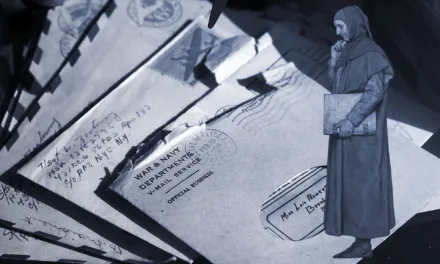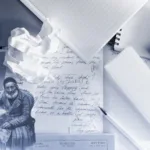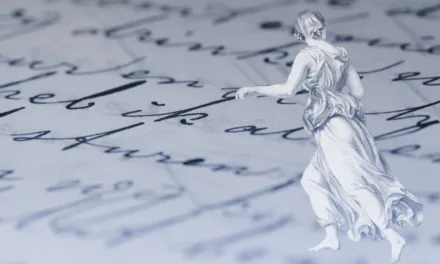
How do I start writing poetry as a beginner?

“I want to write poetry but I have no idea where to start. Any tips?”
Poetry is experiencing a massive resurgence. With the rise of social media, poets are becoming the literary heroes of the Instagram feed as more and more people recognise the therapeutic value of poetry and turning their own thoughts to the page.
Maybe you’ve thought about writing poetry but haven’t been sure where to begin. Not to worry — we’ll guide you through everything you need to know, so that you’ll be writing great poetry in no time.
Before writing
Learning the art of writing poetry starts before you even pick up the pen. Here are some preliminary steps to take before you write a great poem.
Read widely
The best thing you can do as a new poet is read the kind of poetry you want to write. Not only will this give you a sense of what other poets are doing well, but it will also help train your inner ear for the sounds and cadences of poetry. It’s a bit like learning a new language; you’ll absorb it best by immersion.
Learn the basic poetic terms
You don’t need an MFA to write poetry, but it will help if you learn some basic terminology like stanza, line break, enjambment, caesura, metre, and so forth. Being able to put a name to these moving parts will help you make more conscious decisions as you write and heighten your awareness of these choices.
Study rhyme, rhythm, and metre
Likewise, it will help if you develop an awareness of the way a line of poetry is put together. You don’t necessarily need to worry about technical terms like trimeter and trochee just yet, but try to focus on where the voice rises and falls throughout a poem.
One of the most popular metres of poetry is called iambic, which is a pattern of unstressed syllables and stressed syllables: “’Tis now the very witching time of night”. This undulation makes the poem soothing to the ear.
Once you see patterns in the way writers structure their poems, you can choose how to bring these patterns into the way you structure your own poetry.
During writing
Ready to start writing? Let’s dive in.
Choose a subject to write about
Now it’s time to choose what you want your poem to explore. It can be something minuscule — a drop of dew on a blade of grass that looks a bit like a tiny globe — or something grand, like the corrosion of free education, for example. You might find it helpful to do some journaling on the topic first to explore how you feel about it and get your creative wheels turning.
Find a format that works for you
Because poetry is so intimate and emotionally driven, it can be beneficial to give it a tactile element by writing with a pen or pencil and paper as well as drafting on a digital platform. Different forms look and feel different depending on where and how they’re composed, so explore what works best for you.
Don’t worry too much about getting it “right” — that’s what revision is for! Just begin structuring your thoughts into some kind of order and practice, practice, practice.
Overwrite first, trim later
When you’re writing a rough draft, put down lots of material that you can shape into a polished poem later. Many poets find that their poems become a lot shorter as they revise. That’s because they write out a lot of lines and phrases that help them uncover what the heart of the poem is and then cut away the parts they don’t need.
Find your poem’s turning point
Great poems are characterised by what’s called “the turn”, or a shift in the poem’s tone or focus. Often these poems begin by talking about something small and innocent, and then shift into something more emphatic part way through.
For example, maybe a poem starts by talking about a drop of dew on a blade of grass that looks a bit like a tiny globe, but soon the reader realises that what the poet’s really talking about is climate change. Or you could start by writing about a dress you haven’t worn in years, then shift to talking about the person you last saw the night you were wearing that dress. This “turn” gives your poem emotional layers.
After writing
You wrote a poem! Congratulations!! Now it’s time to make it the very best it can be.
Read your work out loud
Great poetry is all about rhythm. The best poets know that reading a finished poem aloud is the key to picking out any snags in the musicality of the piece. Pay attention to any moments in which you get stuck on a hard consonant or trip over any hidden tongue twisters.
Hearing the way it sounds out loud can help you catch issues that you wouldn’t have noticed on the page and make the language as smooth as it can be.
Revise, revise, revise
Poets (in fact, any writers) rarely get it just right on the first draft. Once you’ve completed a poem, set it aside for a little while and come back to it with fresh eyes. Then, you can examine how to give each line the maximum impact and how the overall narrative comes together.
Also, look at the way you’ve shaped your poem and if the line breaks and stanza breaks are pulling their weight. Cut out any material that isn’t necessary — it’s not uncommon for poets to delete the first few lines of a poem because they were just their way of warming up their voice. These superfluous lines are sometimes called “throat clearing” lines.
Get your poems out into the world
Once your poem is as perfect as you can make it, and you’ve revised each punctuation mark and line break until you’ve gone cross-eyed, you’re ready to send it out. There are thousands (thousands!) of literary journals in the big, wide world that welcome submissions of poems from new writers. Somewhere out there is an editor who is going to love your poem and want to share it with their audience.
Next stop: worldwide acclaim. Good luck!





























